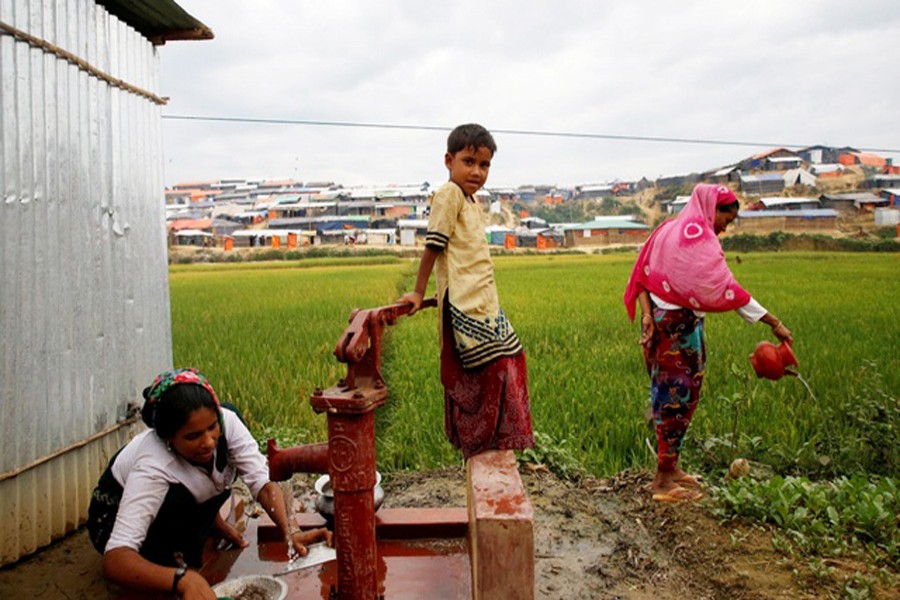The World Health Organisation(WHO) has said 62 per cent of the water drawn from wells at Rohingya refugee camps in Cox’s Bazar is contaminated with high levels of bacteria, including E. Coli.
“We are also concerned by an increase in cases of Acute Watery Diarrhea (AWD) that led to several deaths,UNICEF said”
Between 25 August and 11 November 2017,a total of 36,096 AWD cases were reported including 10 deaths.
“A total of 42 per cent (15,206) were in the under-5 age group. We are seeing an upward trend in infection rates. even as the exact cause of increased cases of AWD remains uncertain, UNICEF added.
Some of the tube wells inside the camps have been dug to shallower depths, have been poorly sited, are very congested and do not have safeguards in place to prevent bacterial contamination at ground level.
UNICEF has been working with its WASH partners to construct tube wells maintaing international standards by ensuring a depth of at least forty meters.
Based on an analysis of the risk, UNICEF have been working with the Bangladesh authorities to urgently investigate levels of contamination, and to ensure better construction practices for tube wells that meet international standards, as per press release.
We are stepping up measures to distribute water purification tablets to provide for purifying water at the households of the the Rohingya camps.
Since the start of the massive influx which has seen some 621,000 new arrivals in less than three months, UNICEF and partners have been working to ensure the provision of safe drinking water, latrines and sanitation systems inside the refugee camps.
Currently, we are distributing around 195,000 liters daily to over 50,000 people through water treatment and trucking; additionally, we have installed more than 420 tube wells serving some 140,000 people.


